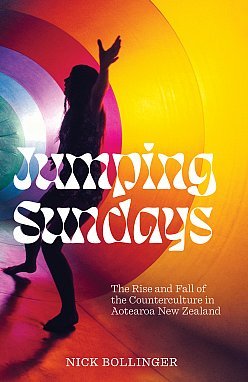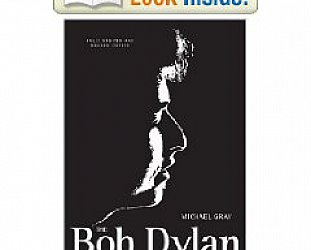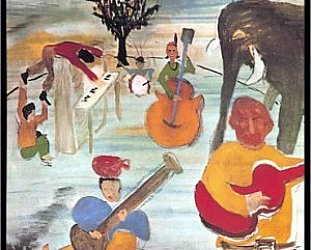Graham Reid | | 2 min read

In Greg McGee's 1981 play Foreskin's Lament, a central character bellows, “the effect of the Sixties on the great miasma amounted to an extra inch of whisker on the end a Taranaki farmer’s side-board.”
This blunt refutation of a self-believing generation – now defined as “boomer” – doubtless gave uncomfortable pause to lapsed radicals and one-time activists as the new decade dawned.
But it wasn't entirely true, as Nick Bollinger's assiduously researched and highly readable Jumping Sundays affirms.
While some of the most visible aspects of the 60s counterculture atrophied or disappeared by the end of the 70s, what became embedded were dissent, protest, Māori land rights, activism, idealism and a plethora of other -isms.
Feminism moved from the margins and universities into ordinary homes, Ngā Tamatoa and the Polynesian Panthers movements lead to serious debate about the Treaty of Waitangi, endemic racism and the anti-apartheid movement.
The 70s was a volatile decade which also saw the emergence of gay rights, the alternative press and the anti-nuke movement.
Shona Laing's “neutral and nuclear-free” rang loud: the latter still in effect, the former currently imperiled by the superpower incursions and swagger in the Pacific.
The ambitious and well-intention ohu initiative under Norman Kirk's Labour government may have largely failed – urban hippies ill-equipped to live off the land – but concern for the environment became a touchstone.
As Bollinger notes, the counterculture ethos of the Values Party (formed in 1972) took roots and it won 5.16 percent of the total vote in the 75 election: “Had the current MMP system been in place, this would have put half a dozen Values Party representative into Parliament”.
Green Party leaders Rod Donald and Jeanette Fitzsimons were former Values Party members.
So what was the counterculture like, this seemingly inchoate rabble of long-haired musicians, left-wing activists, hippies, drugged-up dropouts, pranksters and poets.
As Bollinger shows, it was all of that, but more. The many and various tribes or cabals would intersect – rock music being a common denominator, protest another – with their own specific aspirations and figureheads: Tim Shadbolt, razor sharp feminists Sue Kedgley and Sharyn Cederman, wildman Bruno Lawrence, Ngā Tamatoa's Syd Jackson, publisher Alistair Taylor among them.
In an admirable feat of research and writing, Bollinger explores these avenues with attention to detail, informative anecdotes, bringing largely forgotten and often idiosyncratic figures back into the light and with personal stories part of the sometimes capital-centric weave.
From time to time Rachel Stace – presumably one of Bollinger's friends – pops up as a Zelig-like cipher as she goes from teen-screamer when the Beatles arrived in 1964 to stoned at the Stones' Western Springs concert nine years later then fleeing the heroin scene here for the States to get straight.
The author – born in 1958 so too young to have caught the first flush of the counterculture – also appears in his own narrative as a politicised teenager into music and marijuana, and a close encounter with players in the Mister Asia saga. He's wry, witty and insightful.
Bollinger – recently awarded the Lilburn Research Fellowship for 2023 – charts the rise of the counterculture, often pivoting off international movements, from political antecedents in the 50s through a decade where Scientologists, the Maharishi and Hare Krishna chanters occupied the same space as anti-war protesters, prime minister Robert Muldoon and James K. Baxter.
Strange days indeed but Bollinger makes some sense of it across 400 engrossing pages which pulls art, music, theatre and the street press into this excellent, entertaining and important book.
We look forward to the tie-in soundtrack album he really should compile.
.
Jumping Sundays: The Rise and Fall of the Counterculture in Aotearoa New Zealand by Nick Bollinger. Auckland University Press. $50.
For an extract at Elsewhere go here.





post a comment